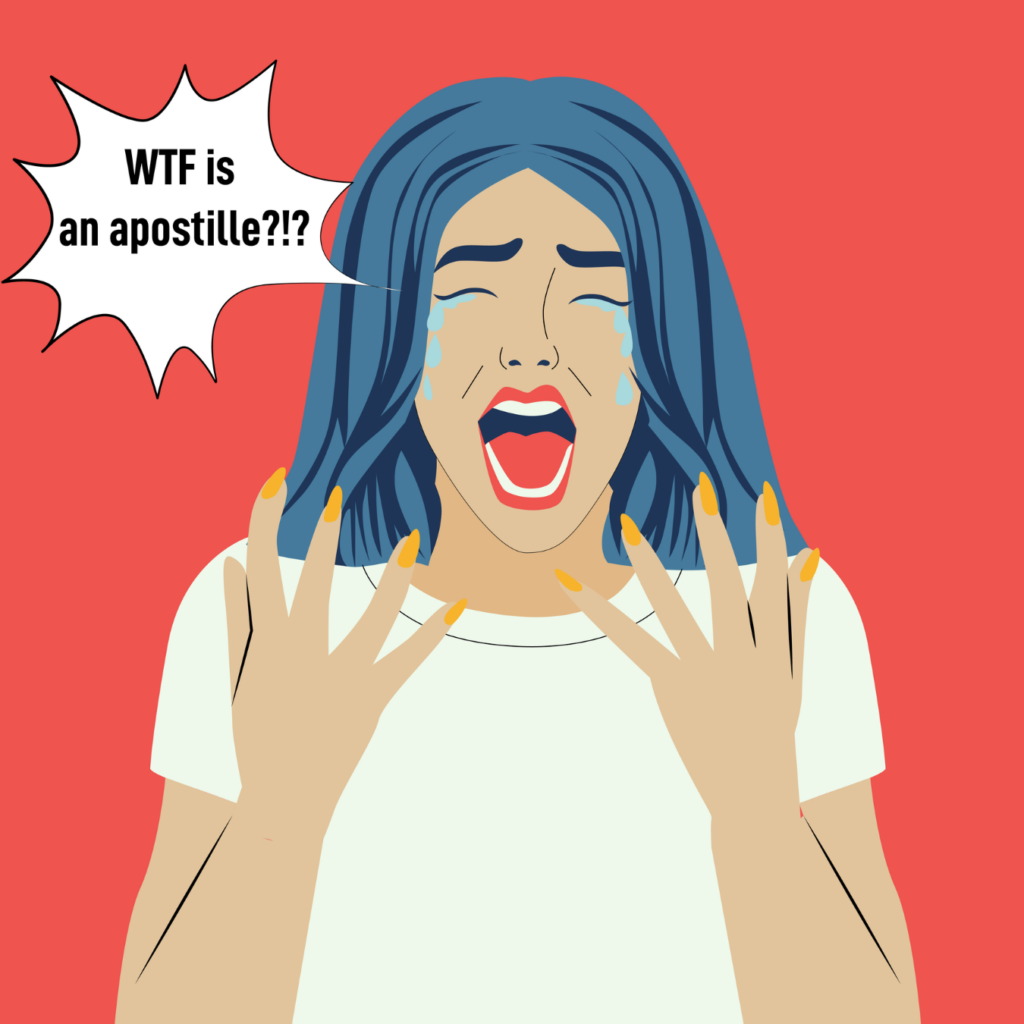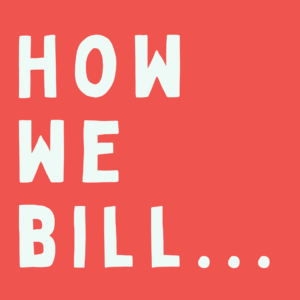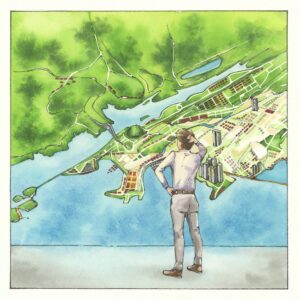If you’re applying for residency or pursuing any other bureaucratic legal process in Panama, your lawyer may request specific documents with an “apostille”. But what exactly is an apostille?
Sometimes attorneys use this term assuming it’s widely known, but you might not be familiar with it. As a matter of fact, you might not even be confident about how to pronounce the word correctly to then be able to ask your lawyer for clarification (uh·paa·stil).
Let’s demystify the concept of an apostille and understand its significance in legal processes.
A Bit of Context and History Lesson
The term “apostille” comes from the French word “apostiller”, which means “to certify”.
An apostille is a certificate that verifies the authenticity of a public document for use in a foreign country. It is specifically recognized among countries that are signatories to the Hague Apostille Convention of 1961. That’s when a bunch of countries got together and agreed to simplify and standardize the process they would use to confirm a document’s legitimacy.
Isn’t that fascinating? I guess it probably isn’t. But the apostille process annoys people who see it as particularly bureaucratic and superfluous. In reality, it makes a lot of sense, albeit a bit of a cumbersome process
Apostille vs. Authentication and Legalization
At some point any foreigner living in Panama will be asked to provide certain docs with an apostille, or your lawyer will talk about “authenticating” or “legalizing” the docs. These terms may even seem to be used sort of interchangeably. That’s because they all refer to a process of verifying the authenticity of foreign docs for use in Panama.
Let me explain. Before apostilles became a thing, countries used a process called “legalization”, which involved an internal process of “authenticating” it with officials in the issuing country, and then presenting it to the embassy or consulate office of the foreign country where the doc will be used. At that point, the doc has been “legalized”.
By the way, that is still more or less the process for countries that are not part of the Hague Apostille Convention. But the countries that did join the Convention agreed to streamline the whole legalization process into a single formality that they all recognize: the apostille stamp.
Since Panama is a party to the Hague Apostille Convention, your lawyer will probably ask you to deliver your docs with an apostille. But all that really means is that you need to authenticate and legalize your documents according to the process that applies in the country where your docs were issued.
For example, Canada is not a part of the Hague Apostille Convention. So Canadians relocating to Panama just have to go through a slightly different process to validate their docs. Thankfully, our law firm has plenty of experience doing this and can provide guidance.
What kind of docs could require an Apostille?
Your Panama lawyer should make all of this very clear when they instruct you as to which docs to provide whatever process they are managing for you.
For example, residency applications in Panama will require a police report from your home country, which should come with an apostille or other form of authentication and legalization. Similarly, if you are applying for residency with your spouse and/or children as dependents then you could be asked to provide a marriage license, birth certificates, relevant court orders, or adoption certificates.
Some residency processes even require an applicant to submit professional degrees or university transcripts. These are also the types of docs that could require an apostille or other form of authentication and legalization.
Be sure to ask your attorney for clarification if you have any doubts about which docs need to be in original, which can be copies and which require an apostille. There is nothing worse than arriving to Panama with all of your carefully organized docs only to find out that you are missing this important detail.
How can you get an Apostille?
This process varies from one country to another. If there are a lot of people coming from your country to Panama, then your Panama attorney may be able to give you some direction. In some countries, there are even companies that can help you with the process for a small fee.
Your country may first require that your document be notarized, and even that process may be particular to your country. But once the document is prepared, you´ll need to send the document to the institution your country uses to provide apostilles. It could be a Secretary of State, Ministry of Foreign Affairs, Ministry of Foreign Relations, or something similar.
The apostille will usually be a certificate printed on a special paper that is attached to the document itself. It will contain a seal or stamp from the institution that issued the apostille, a date and a unique identification number.
Documents Issued within the United States
The State Department issues the apostille in the United States. However, the process may vary a bit, depending on which states you are located. Not only that, the State Department office near you may have specific policies to be aware of before requesting the apostille of your documents.
Instead, we usually recommend that our clients in the United States obtain an authentication of their documents through one of the 8 Panama Consulate offices located in different cities around the Country (a “Consular Authentication”). If you are working with docs from the United States, then check out our article: How to Get an Apostille in the United States.
What if an Apostille is not available in my country?
If your country is not a party to the Hague Apostille Convention, then you will need to go through the process that is available in that country to authenticate and legalize your documents.
For example, in Canada, there is an office called Global Affairs Office that verifies the signatures on such documents and confirms that the document itself is genuine, valid, and recognized in Canada. Once that office issues its certificate of authentication, the documents should then be sent to the Panama Embassy or Consulate for legalization.
UPDATE 1: As of January 11, 2024, Canada has signed onto the Hague Apostille Convention. That means that you can now get an apostille in Canada. This is still processed through the Global Affairs Office, but it makes the process a bit more straightforward for our Canadian clients. I have left this section of the article, as the explanation provided here would still apply in other countries that have not signed onto the Hague Apostille Convention.
UPDATE 2: If you are in the Ontario province, there is an office in Toronto called Official Document Services that can provide the apostille you need for your Panama residency. They appear to offer same-day service if you bring your documents in personally, but contact them first to understand exactly how it works and what they need. You can access the details here: Ontario Official Document Services.
Actually, in some cases, there could be some additional steps. For example, if Panama does not have an embassy or consulate in your country, then the document may need to be sent for legalization in another country that has an agreement with your country for such things. This can add considerable time to the process, so be sure to investigate the authentication and legalization process early on when you start preparing docs for Panama.
Bottom Line?
If you are applying for residency or some other bureaucratic legal process in Panama, your attorney will probably send you a list of documents to bring with you to Panama. If the attorney says that any of the docs need to come with an apostille, it just means that they will need to go through an authentication and legalization process in order to be recognized once you get to Panama. It is not a big deal, but the process and time required to do this may vary from one country to another. So give this some attention early on to avoid any delays to your process.
Be sure to talk with your attorney if you don’t understand something. And if you aren’t getting clear, simple explanations at this early stage of the process, then you may want to consider switching to The Independent Lawyer!
If you found this article relevant, then be sure to check out some of the other articles on our blog. And if you need an apostille for docs in the USA, then you can read all about that process here: How to Get an Apostille in the USA.







